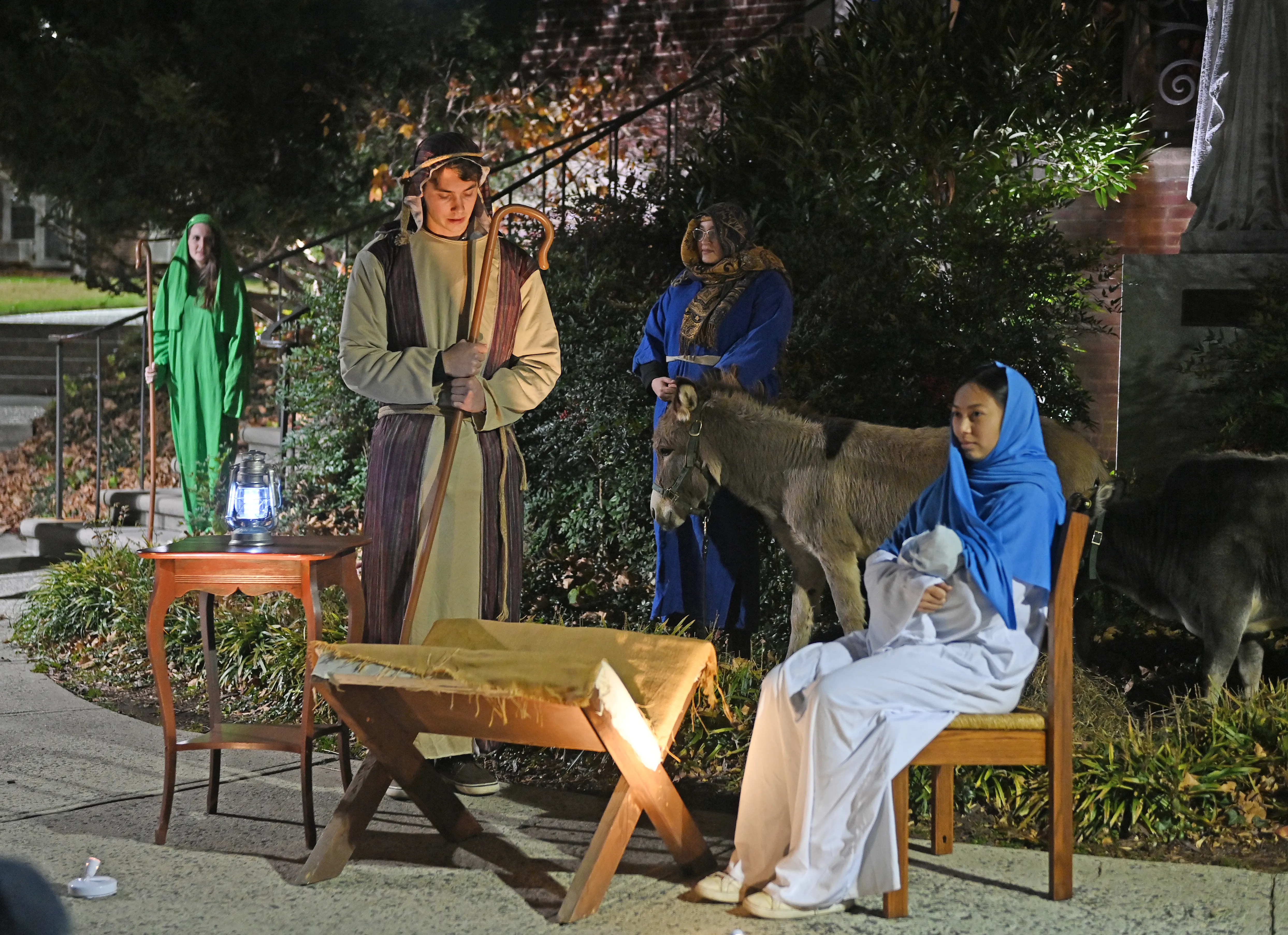
Portland, Ore., Apr 6, 2018 / 10:21 am (CNA/EWTN News).- Partnerships between dioceses and the ecumenical evangelization group Young Life aim to connect Catholic youths with their Catholic parishes.
Young Life opened a Catholic relations office in 2012. Partnerships with bishops and their dioceses have been established over the past three years.
The first partnership began in 2015, in the Diocese of Brownsville. In December 2017 the Archdiocese of Portland signed a memorandum of understanding with Young Life, beginning its own partnership with the group.
“[Young Life] approached the Catholic Church here in western Oregon and said ‘we have these Catholic kids and we want to make sure they are adequately ministered to,’” said Ricky Shoops, the archdiocese’s coordinator of youth and young adults.
“When it comes to how [these kids] plug back into communities, into the sacraments, or ongoing catechesis for formation,” Shoop told CNA that Young Life encourages Catholic kids to be connected with the Church.
Founded in 1941 by a Presbyterian minister, Young Life is a non-denominational, evangelization organization located in over 110 countries worldwide. Young Life focuses on two major projects: outreach and accompaniment for teens, and young adults. The organization is traditionally associated with evangelical Protestant movements.
By promoting authentic friendship between youths and mentors, the organization says it aims to adolescents grow in their faith with camps, bibles studies, praise-and-worship nights, and other activities.
Mentors become involved in the lives of teens and college students. The mentors are urged to pray for the students, to provide opportunities to become more involved in church, to share advice, and to work alongside the students in acts of charity.
Shoop said Archbishop Alexander Sample of Portland saw the group as an opportunity. Meetings were held to discuss the possibility of a partnership, before the memorandum was signed. Shoop said the process has focused on educating Young Life leaders about Catholic teaching and culture, and on recruiting Catholic leaders to join Young Life.
Though the partnership is relatively new, Shoop said there have not yet been difficulties, but said there has been support for the partnership, and even ecumenical team building.
An interfaith event March 2, sponsored by the Archdiocese of Portland and Young Life, drew 240 people and raised almost $130,000 for the partnership’s efforts. Most of those contributions are intended to fund a Catholic staffer at Young Life.
Shoop said that teams from Young Life and the archdiocese often gather to share ideas and pray together, and that they host praise-and-worship nights, like an upcoming event on April 26 with Portland-area Catholic youth ministers and Young Life leaders.
Michael Havercamp, Young Life’s national liaison to the Catholic Church, said the Protestant-founded organization highly respects the Church. He said its goal is not to drive Catholics away from the faith but to encourage Catholic kids to enter more faithfully into parish life.
“We are not there to draw Catholics into any other Christian tradition. We want to them to grow where they have been planted. How we can help, though, is to help reanimate their faith in Christ and then reconnect them to the Catholic Church at the local level.”
Additionally, he said the goal is to aid Catholics in evangelization. Havercamp pointed to the rapidly growing population of people without religious affiliation and the need for tools to help ground adolescents in the Christian faith and parish level.
“We’ve heard more and more…about the rise of the nons, not religious women in habits, but those with no religious affiliation. Well, this is the largest and fastest growing religious demographic in the west and in the United States.”
As a Catholic himself, Havercamp said many Catholics struggle with the idea of evangelization, but cited the bishops and popes who have called for a “new evangelization.”
“[Catholics] have not fully realized their baptismal call to evangelize, or they feel very ill-equipped to do it.”
“The bishops, the U.S. Conference of Catholic Bishops certainly, but also the worldwide college of bishops, have been very intentional about re-grounding the church in the mission, which is evangelization. Pope Paul VI, way back in 75, said the Church exists to evangelize.”
Havercamp hopes more partnerships with dioceses will begin as bishops realize Young Life is not looking to draw teens away from parishes, but instead to become a tool of the Church to aid Catholics in evangelization.
“This is what Young Life really wants to do, to normalize evangelization as the centerpiece to what it means to be Catholic and to learn the natural ways of doing this respectively, particularly as faith is being challenged in our age more and more.”
If you value the news and views Catholic World Report provides, please consider donating to support our efforts. Your contribution will help us continue to make CWR available to all readers worldwide for free, without a subscription. Thank you for your generosity!
Click here for more information on donating to CWR. Click here to sign up for our newsletter.





Since the Newchurch is already Protestant, it shouldn’t be a surprise that more hooking up with heretics outside the church is the way its going. Soon, the name Catholic Church will be found to be too much for ecumaniacs and dropped for something more amenable to the worldly.
Future of the Church is in the hands of the young. Their mission is to lay a strong foundation for themselves and pass it on to Generation Next.